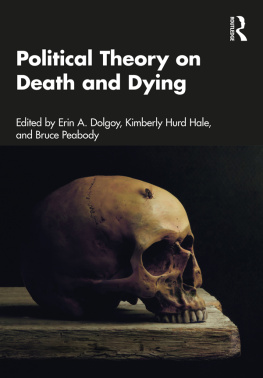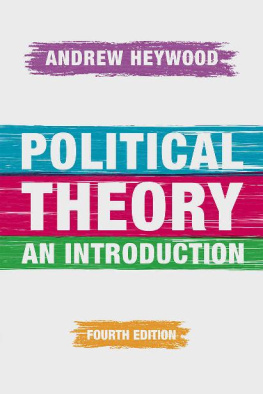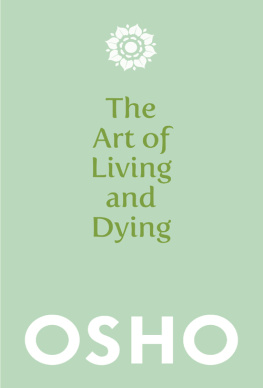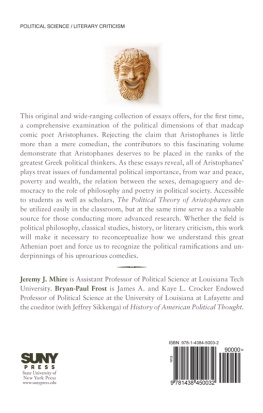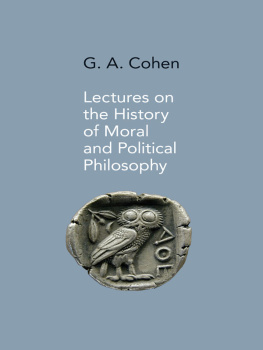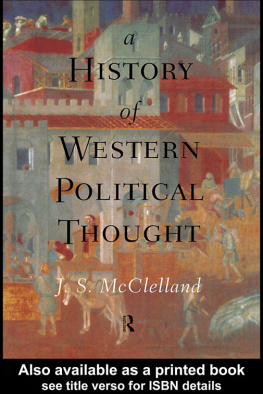Through its chronological approach, and dedication of each chapter to a different classical text or philosopher, this multi-author volume provides a very useful way of getting at the topic of death in the history of philosophy.
Adam Buben,Leiden University
An extraordinary collection45 essays on the thought of thinkers from Homer to MacIntyre on death and dying, broadly understood to include aging and after-death possibilities. Always informativeoften insightfulfrequently provocative.
Michael Zuckert,Reeves Dreux Professor of Political Science at the University of Notre Dame
In the year of COVID-19 comes this timely new book about one of the most fundamental issues in philosophy: death and dying. The Political Theory on Death and Dying is a wonderful compendium of how 45 of the greatest philosophers from Homer to MacIntyre have tackled the problem of death, and, more importantly, its antipode: life! This book will challenge readers to reconsider how they live their lives in the face of the final horizon. Young or old, this is a must-read book. I highly recommend it!
C. Bradley Thompson,Executive Director of the Clemson Institute for the Study of Capitalism and Professor of Political Science, Clemson University
By thoughtfully engaging writings on death from multiple cultures, historical epochs, and thinkers in diverse religious and political traditions, this collection will be a definitive resource for anyone interested in the breadth of human reflection on this universal topic.
Brian Howell,Professor of Anthropology, Wheaton College
Political Theory on Death and Dying
Political Theory on Death and Dying provides a comprehensive, encyclopedic review that compiles and curates the latest scholarship, research, and debates on the political and social implications of death and dying.
Adopting an easy-to-follow chronological and multi-disciplinary approach on 45 canonical figures and thinkers, leading scholars from a diverse range of fields, including political science, philosophy, and English, discuss each thinkers ethical and philosophical accounts on mortality and death. Each chapter focuses on a single established figure in political philosophy, as well as religious and literary thinkers, covering classical to contemporary thought on death. Through this approach, the chapters are designed to stand alone, allowing the reader to study every entry in isolation and with greater depth, as well as trace how thinkers are influenced by their predecessors.
A key contribution to the field, Political Theory on Death and Dying provides an excellent overview for students and researchers who study philosophy of death, the history of political thought, and political philosophy.
Erin A. Dolgoy is assistant professor of philosophy and assistant professor of politics & law at Rhodes College. Her work has been published in Perspectives on Political Science, Utopian Studies (with Kimberly Hurd Hale), and Political Science Reviewer (with Kimberly Hurd Hale). She is co-editor (with Kimberly Hurd Hale and Bruce Peabody) of Short Stories and Political Philosophy: Power, Prose, and Persuasion (2019).
Kimberly Hurd Hale is associate professor of politics at Coastal Carolina University. She is author of Francis Bacons New Atlantis in the Foundation of Modern Political Thought (2013), The Politics of Perfection: Technology and Creation in Literature and Film (2016), and co-editor (with Erin A. Dolgoy and Bruce Peabody) of Short Stories and Political Philosophy: Power, Prose, and Persuasion (2019).
Bruce Peabody is professor of government and politics at Fairleigh Dickinson University. He is the co-editor (with Gloria Pastorino) of Beyond the Living Dead: Essays on the Romero Legacy (2021), co-editor (with Kimberly Hurd Hale and Erin A. Dolgoy) of Short Stories and Political Philosophy: Power, Prose, and Persuasion (2019), and co-author (with Krista Jenkins) of Where Have all the Heroes Gone: The Changing Nature of American Valor (2017).
Political Theory on Death and Dying
Edited by
Erin A. Dolgoy, Kimberly Hurd Hale, and Bruce Peabody

First published 2022
by Routledge
605 Third Avenue, New York, NY 10158
and by Routledge
2 Park Square, Milton Park, Abingdon, Oxon, OX14 4RN
Routledge is an imprint of the Taylor & Francis Group, an Informa business
2022 Taylor & Francis
The right of Erin A. Dolgoy, Kimberly Hurd Hale, and Bruce Peabody to be identified as the authors of the editorial material, and of the authors for their individual chapters, has been asserted in accordance with sections 77 and 78 of the Copyright, Designs and Patents Act 1988.
All rights reserved. No part of this book may be reprinted or reproduced or utilised in any form or by any electronic, mechanical, or other means, now known or hereafter invented, including photocopying and recording, or in any information storage or retrieval system, without permission in writing from the publishers.
Trademark notice: Product or corporate names may be trademarks or registered trademarks, and are used only for identification and explanation without intent to infringe.
Library of Congress Cataloging-in-Publication Data
A catalog record for this title has been requested
ISBN: 978-0-367-43741-1 (hbk)
ISBN: 978-0-367-43738-1 (pbk)
ISBN: 978-1-003-00538-4 (ebk)
DOI: 10.4324/9781003005384
Typeset in Times New Roman
by Newgen Publishing UK
Contents
Erin A. Dolgoy, Kimberly Hurd Hale, and Bruce Peabody
Rachel K. Alexander
Li-Hsiang Lisa Rosenlee
Daniel Schillinger
Ann Ward
Marlene K. Sokolon
Matthew J. Moore
Alex R Gillham
Peng Yu
Stuart Gray
Carly T. Herold
Taylor W. Cyr
J. Michael Hoffpauir
James R. Stoner, Jr.
Alexander Orwin
Sean Hanretta
Joshua Parens
Faisal Baluch
Brandon Turner
Mary P. Nichols
Erin A. Dolgoy
Frans Svensson
Kimberly Hurd Hale
Aaron L. Herold
Bradley R. Jackson
Jack Clinton Byham
Trevor Shelley
Stephen Wirls
Daniel Cullen
Maria Pia Paganelli
Lauren K. Hall
Jeffrey Church
Bruce Peabody
Cecil L. Eubanks
Jamie Aroosi
Benjamin T. Lynerd
Helen McCabe
Laura K. Field
Veena R. Howard
Michael Christopher Sardo
Mark A. Menaldo
Tom Roach
Kiki Berk
Chas. Phillips
Marguerite La Caze
John W. Schiemann
Rachel K. Alexander is a postdoctoral research associate and lecturer in the Department of Politics at the University of Virginia.
Jamie Aroosi is a senior research fellow at the Hong Kierkegaard Library at St. Olaf College.
Faisal Baluch is assistant professor of political science at the College of the Holy Cross.
Kiki Berk is associate professor of philosophy at Southern New Hampshire University.

